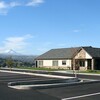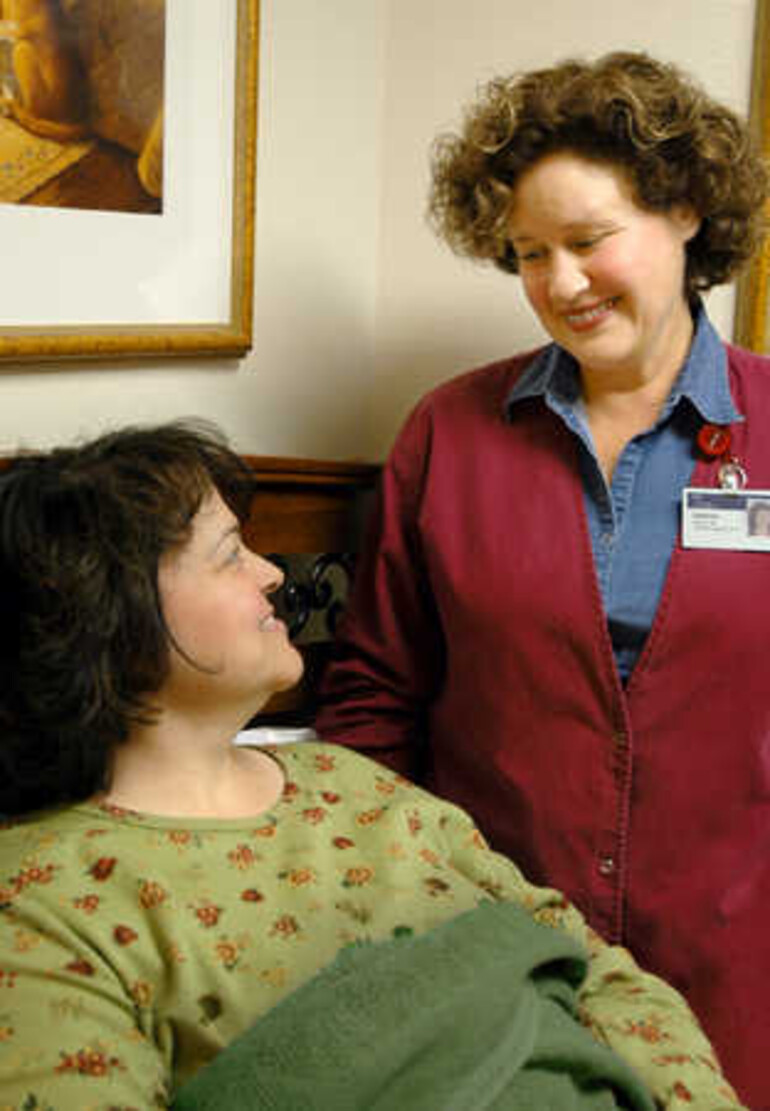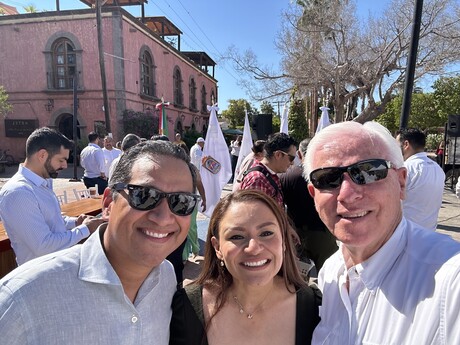"When I saw the huge picture of Jesus on the wall, I felt I belonged at Walla Walla General Hospital (WWGH)," said Catherine Zundel, polysomnography technician in the sleep lab.
Zundel moved to Walla Walla after leaving a supervisory job as a respiratory therapist. Even though WWGH had no such opening, Zundel applied. She and her husband prayed.
In a conversation with Lisa Bennett, who, at the time, was the hospital's respiratory and sleep director, Zundel mentioned that in her previous job, she would relieve the technician in the sleep lab and take off the patients' electrodes in the morning.
"If you have sleep lab experience, I have a full-time job for you," said Bennett, who was eager to find a permanent alternative to using traveling technicians.
Zundel's orientation to her new position began with prayer. "I knew I was in the right place," she recalls. Orientation also included encouragement to talk about spiritual matters with patients. Zundel liked the idea, but she hesitated. Coming from a secular work environment, she had frequently referred patients to the hospital chaplain, but rarely had taken the initiative in spiritual discussions.
One evening, a patient came in for a sleep study. The client's deep and mature faith impressed Zundel. Even so, the patient expressed some uneasiness and asked, "Will you pray with me?"
"Of course," Zundel answered.
As the patient slept, Zundel had a compelling impression: "You have permission to pray with patients, and I want you to." She had a strong sense that God was calling her to be more directly and intentionally involved in the spiritual care of her patients.
Zundel began asking every patient if she could pray with him or her. One patient wept in response. Another thanked her in the morning. Another time, the question led to an hour-long discussion on religious beliefs.
On one occasion, she felt impressed to ask, "Do you know Jesus?"
Her internal logic argued, "No, God. You don't really want me to do this, do You?"
The impression remained strong as she stood behind the patient, positioning the electrodes. Zundel stopped, put her hands on the client's shoulders and asked the question. The patient did know Jesus, and they started talking. Months later, they saw each other on the street. The former patient enveloped Zundel in a bear hug.
At times, the hospital's overhead pager broadcasts the message, "Code Love." Zundel and her fellow employees recognize this as an invitation to stop and pray. They don't need to know for whom they pray. They don't need to know the situation. But a patient who has requested prayer knows that at that signal, hospital employees pause to call on the Great Healer.
"This job has affirmed the reality of spiritual needs," says Zundel. "People are much more open when they have health problems. I always tried to consider patients' spiritual needs before, but now I'm much more aware."
Attending to those needs is her way of making a difference and of furthering the hospital's mission to restore peace, hope and health as Jesus did—sometimes one person at a time, in the quiet of the night.








